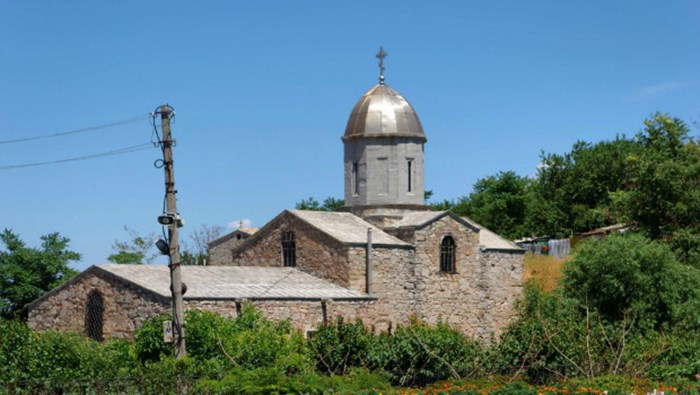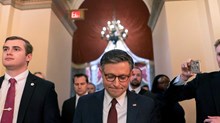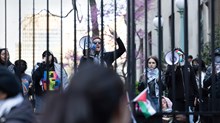
There were 1,546 official religious groups in Crimea when citizens of that region voted overwhelmingly last year to leave Ukraine and join Russia.
Today only about 14 remain, according to the religious liberty watchdog group Forum 18.
Under rules imposed last fall, all Crimean religious groups had to re-register with Russian authorities.
According to Forum 18, this included requiring their leaders to become Russian citizens, to join an existing centralized religious organization, or in some cases to pass a state religion expertise text.
Without registration, even simple day-to-day tasks have become difficult.
“Without registration under Russian law, religious communities can meet for religious purposes,” according to Forum 18. “However, they cannot enjoy the rights that legal entities have, including to enter into contracts to rent property, employ people or invite foreigners for religious activity.”
Around two million people live in Crimea, where the majority of the population belongs to the Russian Orthodox Church.
Evangelicals, Catholics, Muslims, Jews, and other faith groups have all been restricted by the new laws, according toForeign Affairs. Without registration, several expat Catholic priests and nuns have already been forced to leave the country.
Members of the United States Commission on International Religious Freedom painted a bleak picture for religious groups in Crimea in a recentForeign Affairs op-ed:
In March of last year, Reform Rabbi Mikhail Kapustin of Simferopol was forced to leave Crimea after denouncing Russian actions. His synagogue had been defaced by a swastika and, a month later, vandals defaced Sevastopol’s monument to 4,200 Jews killed by the Nazis in July 1942.
And even Christian churches and leaders who are not affiliated with the Moscow Patriarchate have come under increasing pressure, facing abuse and violence. Last June, the leader of the Salvation Army in Crimea, left the peninsula after reporting repeated harassment by security agents. By late 2014, clergy without Russian citizenship, particularly Greek and Roman Catholics and those belongingto the Kiev Patriarchate, were compelled to leave Crimea, and the home of the Kiev Patriarchate’s Bishop of Simferopol and Crimea, Klyment Kushch, was burned down .
Religious liberty watchdog groups and persecuted church advocates worry Crimea is only the beginning. They fear parts of Ukraine controlled by rebels allied with Russia will also impose restrictions on religious groups.
“The picture in the Crimea under Russian annexation paints a disturbing picture of the future for Christians in Russian-controlled territories,” said Paul Robinson, chief executive of Release International.
Protestants were surprisingly successful in Ukraine after the end of the Cold War, making it “Europe’s unlikely Bible Belt,” as the online business publication Quartz put it.
“But since Russian Orthodoxy is the predominant faith in Ukraine’s separatist eastern regions,” Quartz reported recently, “it’s unsurprising that pro-Russian separatists view Protestantism as a kind of existential threat.”
A Vice correspondent recently reported on Protestants in Ukraine who lost access to their churches after the buildings were taken over by separatists.
Andrei Purgin, a high-ranking official in the Donetsk People's Republic, a Ukrainian rebel group with ties the Russia, denied that the Protestant church takeover was official policy and told Vice that his group “was against this.”
Purgin told Vice said that Ukraine guarantees freedom of religion, but rebels want to ensure a central role for the Orthodox Church.
“Orthodoxy is one of the foundations of our statehood but at the same time, we are not trying to violate anyone’s rights,” he told Vice.
CT has covered the recent conflict in Ukraine, including how the country's acting president, Oleksandr Turchynov, is a former Baptist pastor, and how Russia blocked Americans from adopting children from Crimea. CT featured the clergy who took a literal stand in Ukraine's protests, and how they held an all-night prayer vigil, hoping to prevent Russia's invasion. CT also offered a 160-year Christian history behind the Ukrainian conflict and the Crimean Peninsula.

Support Our Work
Subscribe to CT for less than $4.25/month


















